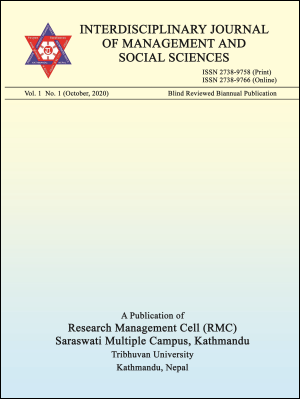Negotiation of Subjectivity: Subject on Trail in Judith Thompson’s The Crackwalker
DOI:
https://doi.org/10.3126/ijmss.v1i1.34616Keywords:
Subject on trial, semiotic, symbolic, signifying system, instinctual drives, fluidity, negotiationAbstract
This paper tries to explore the notion of ‘subject on trial’ in Judith Thompson’s play The Crack Walker. This kind of subject is always in process and never fully formed. The semiotic language used by the subject creates a flow and fluidity that is all the time mobile and dynamic. The play uses unusual signifying systems which lend themselves to the study of the fluid psychology of the characters in the play. This kind of psychology operates through unusual signifying codes based on disease, sexuality and body functions. The elements like alliterations, ellipsis and distorted syntax make the language poetic which helps to vocalize the fears, instincts and desires of the characters. This kind of language is appropriate to express the subjectivity that is constantly in movement. It helps to destabilize the notion of fixed and stable identity and subjectivity. Julia Kristeva’s concept of semiotic language is used as a tool for analysing the fluid subjectivity of Theresa, the central character in the play. It is however, the interaction between the language of the father (symbolic) and the language of the mother (semiotic) that helps to create a subjectivity that can function meaningfully in the public arena.

